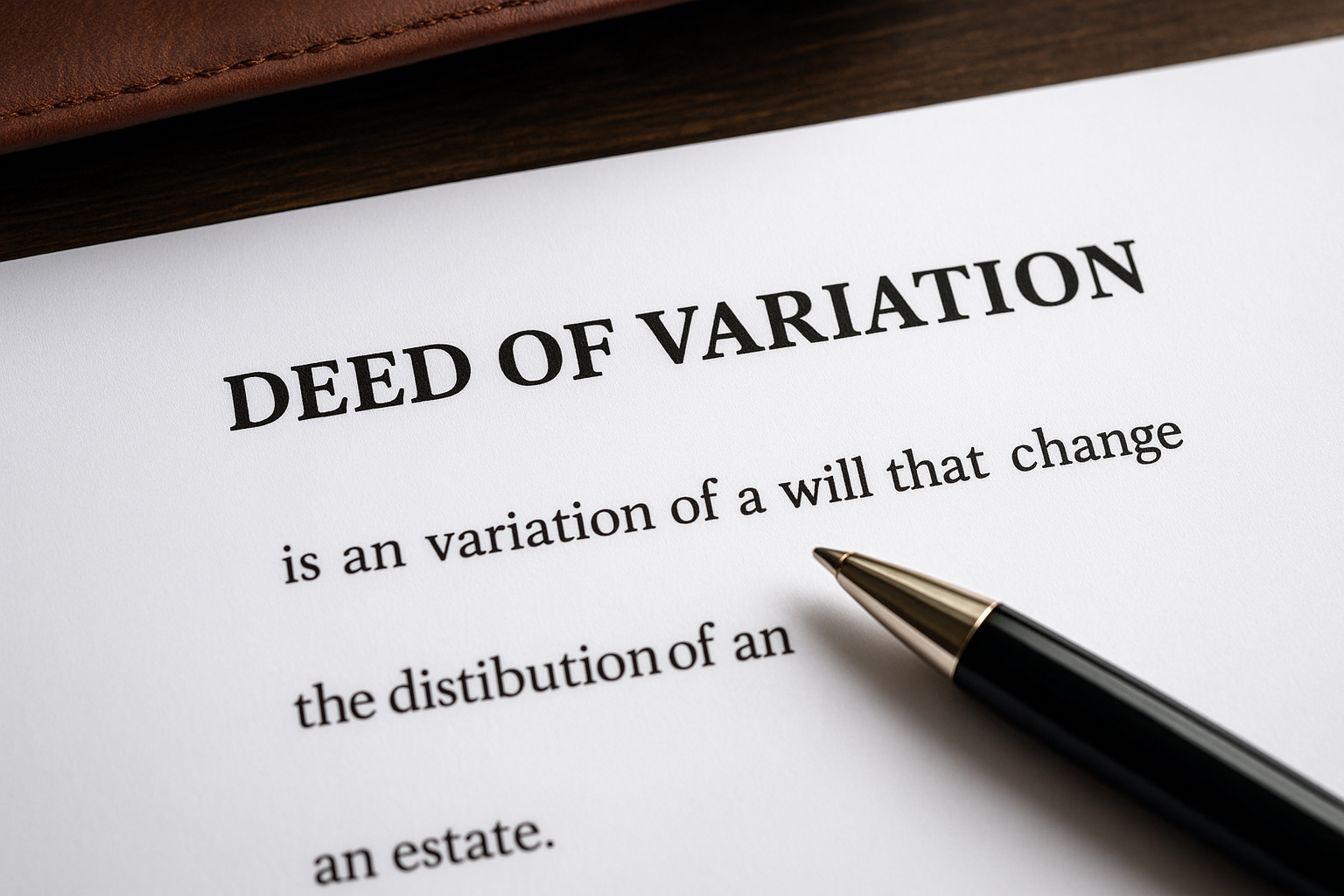Most people familiar with the administration of an English estate know that a Deed of Variation can be used in England (and Wales) to change the distribution of an estate within two years of the date of death, provided certain criteria are met:
- All affected beneficiaries agree to the variation (and are legally capable of consenting – i.e. adults with mental capacity).
- The change does not reduce what other beneficiaries are entitled to, unless they consent.
- The variation is put in writing, signed, and dated.
That much is well-known — but what about foreign assets, such as property in Spain? Is it possible to use an English Deed of Variation to alter the distribution of a Spanish will?
The Case: A Spanish Will and a Tax Problem
I faced this question in a recent probate matter.
The deceased was British, domiciled and habitually resident in England, and owned assets in both the UK and Spain. Being a prudent man, he had executed a will in each country, leaving all his assets — both English and Spanish — to his wife and two children.
However, on death, a problem became clear: the estate was large, and leaving assets directly to the children created a significant Inheritance Tax (IHT) liability in England.
As you may know, transfers between spouses are exempt from IHT in England and Wales, but transfers to children can be taxable above:
- £325,000 (the standard nil-rate band), or
- £650,000 (if the unused allowance from the first spouse is available).
If the wills were left unaltered, the children would have paid a considerable amount of IHT. The English solicitors dealing with the administration of the UK estate suggested a Deed of Variation for the UK estate — but could the Spanish estate be varied as well?
Applying a Deed of Variation to a Spanish Will
After detailed research, I concluded that yes, it is possible to use an English Deed of Variation to vary a Spanish will — but only in specific circumstances.
The key factor was that English law applied to the deceased’s worldwide estate. This was true here because the deceased had been habitually resident in England. (If he had been habitually resident in Spain at the time of death, Spanish succession law could have applied and variation would have been impossible.)
Working with the English solicitors, we prepared a Deed of Variation designed to take effect both in the UK and in Spain. To ensure acceptance by the Spanish authorities, we:
- Prepared a certificate of English law confirming the validity of the variation under English succession law.
- Translated the Deed and certificate into Spanish.
- Legalised the documents with the Hague Apostille.
We then presented these, along with the usual Spanish probate paperwork, to the Spanish Notary and Land Registry. Both accepted the documents and recognised the validity of the Deed of Variation in Spain.
The result: the children delayed receiving their inheritance until after their mother’s death, but they saved a very significant amount in IHT — a trade-off they were happy to make.

Leave a Reply